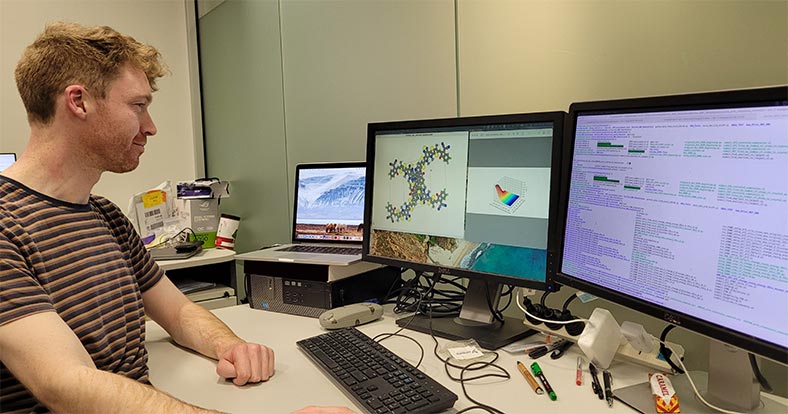Kiwi postdoc powers Japanese collaboration for computational discovery of new solar cell materials - Annual Report 2023
13 April, 2024

Geoffrey Weal
Materials scientists are a little too blessed with all the options they have for making climate-friendly solar cells cheaper and more efficient, so they're turning to artificial intelligence (AI) to speed up the process. MacDiarmid Institute alumnus and 2023 Japan Society for the Promotion of Science (JSPS) Fellow Dr Geoffrey Weal is aiming to be part of that solution.
Solar cell research has come a long way in recent years as scientists race to develop new cost-effective and efficient solar cell materials. But the research has almost been too successful, because now that we know more about what makes a good solar cell, there are literally tens of thousands of new options for solar materials.
"It's not often in science we have too many solutions," says Geoffrey, one of only two New Zealanders selected by the Royal Society of New Zealand for a JSPS Postdoctoral Fellowship this year. "That's the problem facing solar cell chemists around the world as they trawl through the thousands of potential candidates of new materials to find the best one for the next solar cell breakthrough. It’s just not possible for lab chemists to test each and every material."
So, researchers are turning to computing.
The Fellowship will enable Geoffrey to be part of the solution. Over the next two years, he and his colleagues at Kyoto University’s Institute for Integrated Cell Materials Science are using computing and AI to discover which of the tens of thousands of potential new solar materials will best increase solar cell efficiency.
It’s just not possible for lab chemists to test each and every material.
Dr Geoffrey Weal MacDiarmid Institute alumnus


